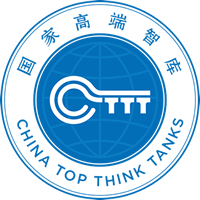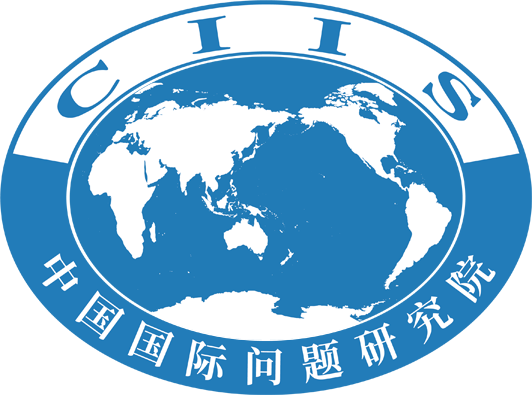As world leaders gathered at the World Health Assembly to salvage humanity from the scourge of the worst global health crisis in a century, U.S. President Donald Trump chose a different path. In a letter to the WHO Director-General Tedros Adhanom Ghebreyesus, he mounted on a politicization campaign of the COVID-19 pandemic, which would entail great cost to the U.S. and the world.
Politicization campaign
In the letter, President Trump made a litany of allegations against the WHO and threatened to make the temporary freeze of U.S. funding permanent and even withdraw the U.S. membership in the organization.
These allegations are unfounded. As acknowledged by the wider international community, the WHO has acted in good faith under the leadership of Dr. Tedros, and has played a decisive and timely role in informing, supporting, and coordinating member countries in response to the COVID-19 pandemic.
These allegations are also grossly misleading. In fact, the U.S. has been the biggest donor to the WHO and has been pushing its favorite agenda in the organization for years. President Trump is resorting to his favorite toolkit of maximum pressure in an attempt to extort concessions from the WHO. In this time of critical urgency, the WHO is commendable in withstanding pressure from the United States.
In the year of U.S. presidential election, the Trump administration has a powerful incentive to shift blame for its botched response to the pandemic. Despite an initial small "Trump bump" after fashioning himself as a "war-time President," Mr. Trump witnessed his approval ratings drop back to pre-COVID-19 levels as the situation worsens. The WHO and Dr. Tedros have become an easy scapegoat for the full-blown outbreak in the United States.
Politicization is diverting U.S. attention
As a country with the most advanced public health infrastructure and disease control system, it is bizarre for the U.S. to become the hardest-hit country in the pandemic. Ironically, it is the effort of politicization that diverted U.S. attention to respond to the pandemic in a timely manner.
Politicization led the U.S. government to downplay the severity of the outbreak in its initial stage. President Trump once called the COVID-19 a new "hoax" set up by the Democratic Party and repeatedly assured the public of low risks to the American public. Economic considerations also led him to fight the virus in a halfhearted way and push for a premature "grand reopening" of the economy.
Due to suspicions of international institutions, the U.S. refused the testing gear provided by the WHO, thus delaying the critical period to conduct testing and hampered effective response to the outbreak.
The U.S. obsession with China is also resulting in wasting the valuable window created by the Chinese for the world to contain the virus. The U.S. was the first in issuing a travel ban on China and repatriated citizens from Wuhan. But the move was largely out of political motives, thus it did not heed to risks of imported cases from other countries. The White House's effort to unify messaging on blaming China also compromised information transparency.
Politicization is undermining global cooperation
Amid an ongoing pandemic, such politicization would incur unbearable costs to humanity by undermining global cooperation.
The U.S. move came as a stark contrast to concerted effort by China and other countries pledging greater resources to the WHO. And the U.S. has already become a bad actor in thwarting global effort to fight the pandemic. Its insistence on deflecting blame to China and the WHO blocked the G7 and G20 joint statements on fighting COVID-19 and the UN global ceasefire agreement.
The U.S. is also sowing division by using the pandemic as a new front in its "great power competition" with China. Such state-sponsored politicization campaign to stigmatize China and the push for conspiracy theories has incited racial discrimination and even hate crimes against people of Chinese ethnicity.
Confronted with chronic shortages in funding and staffing as well as ever-expanding global health threats, the WHO is facing severe challenges. Instead of playing a leadership role amid a global humanitarian crisis, the U.S. chose to shirk responsibility and extort concessions from the WHO. The U.S. behavior is worsening the deficit in the global health governance.
Cooperation is easier said than done, especially under international anarchy. But given the imperative nature of the raging pandemic, it is time for countries to set aside politics and join effort to redress deficit in global health governance.
Source: CGTN, May 20, 2020.
Yuan Sha is an assistant research fellow at the China Institute of International Studies.
Politicization campaign
In the letter, President Trump made a litany of allegations against the WHO and threatened to make the temporary freeze of U.S. funding permanent and even withdraw the U.S. membership in the organization.
These allegations are unfounded. As acknowledged by the wider international community, the WHO has acted in good faith under the leadership of Dr. Tedros, and has played a decisive and timely role in informing, supporting, and coordinating member countries in response to the COVID-19 pandemic.
These allegations are also grossly misleading. In fact, the U.S. has been the biggest donor to the WHO and has been pushing its favorite agenda in the organization for years. President Trump is resorting to his favorite toolkit of maximum pressure in an attempt to extort concessions from the WHO. In this time of critical urgency, the WHO is commendable in withstanding pressure from the United States.
In the year of U.S. presidential election, the Trump administration has a powerful incentive to shift blame for its botched response to the pandemic. Despite an initial small "Trump bump" after fashioning himself as a "war-time President," Mr. Trump witnessed his approval ratings drop back to pre-COVID-19 levels as the situation worsens. The WHO and Dr. Tedros have become an easy scapegoat for the full-blown outbreak in the United States.
Politicization is diverting U.S. attention
As a country with the most advanced public health infrastructure and disease control system, it is bizarre for the U.S. to become the hardest-hit country in the pandemic. Ironically, it is the effort of politicization that diverted U.S. attention to respond to the pandemic in a timely manner.
Politicization led the U.S. government to downplay the severity of the outbreak in its initial stage. President Trump once called the COVID-19 a new "hoax" set up by the Democratic Party and repeatedly assured the public of low risks to the American public. Economic considerations also led him to fight the virus in a halfhearted way and push for a premature "grand reopening" of the economy.
Due to suspicions of international institutions, the U.S. refused the testing gear provided by the WHO, thus delaying the critical period to conduct testing and hampered effective response to the outbreak.
The U.S. obsession with China is also resulting in wasting the valuable window created by the Chinese for the world to contain the virus. The U.S. was the first in issuing a travel ban on China and repatriated citizens from Wuhan. But the move was largely out of political motives, thus it did not heed to risks of imported cases from other countries. The White House's effort to unify messaging on blaming China also compromised information transparency.
Politicization is undermining global cooperation
Amid an ongoing pandemic, such politicization would incur unbearable costs to humanity by undermining global cooperation.
The U.S. move came as a stark contrast to concerted effort by China and other countries pledging greater resources to the WHO. And the U.S. has already become a bad actor in thwarting global effort to fight the pandemic. Its insistence on deflecting blame to China and the WHO blocked the G7 and G20 joint statements on fighting COVID-19 and the UN global ceasefire agreement.
The U.S. is also sowing division by using the pandemic as a new front in its "great power competition" with China. Such state-sponsored politicization campaign to stigmatize China and the push for conspiracy theories has incited racial discrimination and even hate crimes against people of Chinese ethnicity.
Confronted with chronic shortages in funding and staffing as well as ever-expanding global health threats, the WHO is facing severe challenges. Instead of playing a leadership role amid a global humanitarian crisis, the U.S. chose to shirk responsibility and extort concessions from the WHO. The U.S. behavior is worsening the deficit in the global health governance.
Cooperation is easier said than done, especially under international anarchy. But given the imperative nature of the raging pandemic, it is time for countries to set aside politics and join effort to redress deficit in global health governance.
Source: CGTN, May 20, 2020.
Yuan Sha is an assistant research fellow at the China Institute of International Studies.



